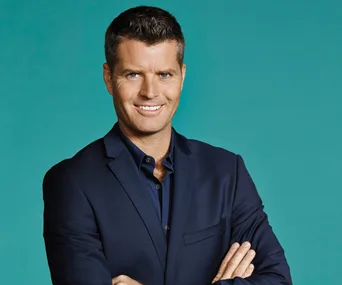Celebrity chef Pete Evans has rejected public health advice that his dumped homemade Paleo infant formula recipe could have been dangerous to babies – despite all evidence to the contrary.
The Paleo crusader also claimed a similar liver-based recipe – published by the president of an organisation that is anti-vaccination, anti-fluoride, anti-sunscreen and pro-lard – had been around for more than 20 years in the US without a known case of harm.
In an interview aired by his employer Channel 7 last night, the My Kitchen Rules host claimed the original version of his book Bubba Yum Yum: The Paleo Way for New Mums, Babies and Toddlers was shelved days before its scheduled release because “our publisher got nervous”.
“They were nervous at how the big retailers would respond to negative publicity,” Pete told the Sunday Night program. “This recipe has been in print, in publication, for over 20 years, in America. I think it’s sold a million copies and never once was there any issue with it.”
The Weekly Online – which exclusively revealed the public health fears over the book that led to it being pulled – learned the original publisher Pan Macmillan decided not to proceed with its release after serious concerns were raised by a consortium of health organisations.
The decision to shelve the already-printed book, say those involved, involved legal consultation and was ultimately made by Pan Macmillan’s board.
Pete’s Bubba Yum Yum co-authors Charlotte Carr and Helen Padarin have previously acknowledged the original DIY bone broth recipe did not meet the criteria to be called a formula – and accepted changes to the recipe to make it safer for infants.
In the self-published version of the book, it has been rebranded “Happy Tummy Brew”, moved up into the older 6 to 12-month section and recommended to be given only “once a day”.
Here are some of the important facts that Pete Evans did not acknowledge in his interview on Sunday night:
1.The original DIY bone broth formula recipe was independently analysed and found to be unsafe. It could “cause permanent damage and possibly result in death,” experts concluded. Among problems were that it contained 749% as much vitamin A as breastmilk, 2326% as much vitamin B12, 1067% as much iron, 879% as much salt and 220% as much protein. Young babies’ immune and digestive systems cannot process very high levels of these nutrients.
2.Promoting a DIY formula as an alternative to breastfeeding or commercial formulas is prohibited by the Food Standards Code. It hadn’t undergone testing for safety or efficacy, which is important in a product likely to be a sole or primary source of nutrition for babies. The World Health Organisation says the only suitable alternative to breastfeeding for young babies is commercial formula.
3.The original Bubba Yum Yum book also included risky ingredients that aren’t recommended for babies under 12 months because of the risk of infection – for example, runny eggs, honey and raw liver. This has been rectified in a subsequent, self-published version of the book.
4.A published book containing a similar DIY infant formula recipe – as referred to by Pete Evans – is called Nourishing Traditions. It was written by Sally Fallon, who is president of the Weston A Price Foundation – which claims vaccination and fluoride are dangerous, says “the sun doesn’t cause melanoma” and advocates eating lard for health. She spoke via Skype at the recent Mindd International Forum, attended by The Weekly for an investigation into the wellness industry.
5.In the updated version of the book, it’s claimed the rebranded DIY formula is based on this recipe by “world renowned nutritional biochemist Dr Mary Enig” that has been shared “millions of times over”. The late Dr Enig (also the co-author of Nourishing Traditions) was an unconventional nutritionist who also suggested coconut oil could be used to treat HIV and AIDS.
Among organisations that raised concerns over the original DIY Paleo formula were the Federal Department of Health, the Public Health Association of Australia, the Dietitians Association of Australia and the Australian Breastfeeding Association.



